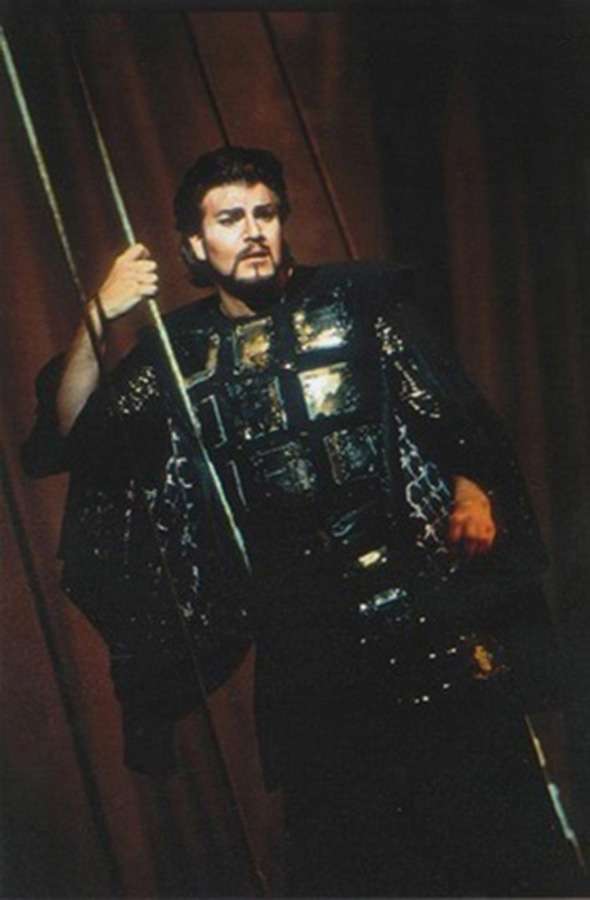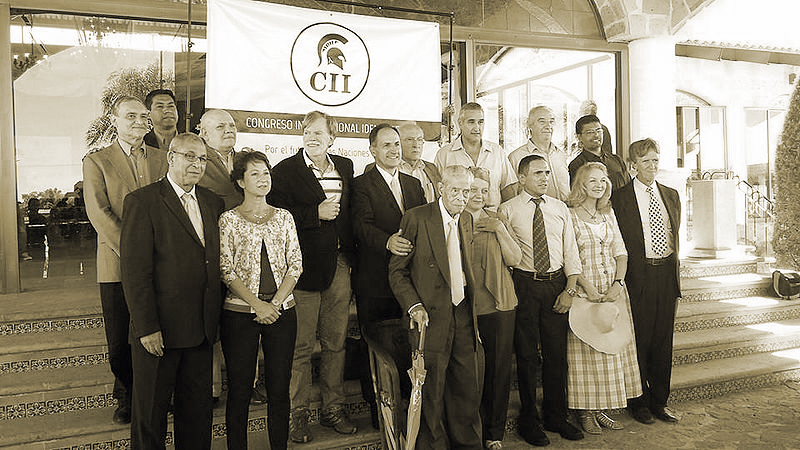The finale of the 5th season of Game of Thrones
Had it not been for an accident in my teens, now I would be a consummate film director. My forte has always been the visual arts. Precisely because they are my forte I noticed, since childhood, the beauty of the Aryan race, especially girls. In a sea of mud in Mexico the very few blondes with delicate features seemed to me like lotus flowers floating on the sea.
As message, Game of Thrones (GoT) is quite bad. Like everything we see on television in our times, it makes equal man and woman by showing female warriors or female heads of state. To boot, GoT depicts promiscuity as normal, sometimes with scenes that are disgusting and I mean not only the homosexual, but heterosexual light porn alike. If I were the author of the books or the director I’d put the High Sparrow as the hero of the saga. After a couple of centuries of disbanding the Faith Militant, the military arm of the Faith of the Seven is restored, this time led by the sparrows thus ending the degeneration of royalty in the city King’s Landing.
The screenwriters of GoT will never do something similar in this darkest time of the West. (On the contrary, perhaps in the following season the Frankenstein that created Cersei’s doctor will terminate the sparrows.) But the writers of the ethnostate could do it in tales that retain the enormous beauty of some scenarios we’ve seen in GoT, with the difference that our values would be transvalued (goodbye Jesus—and forever).
Anesthetized spectator
From a strictly cinematic, not axiologic, viewpoint the first forty-nine episodes of GoT were well directed. In the last one, “Mother’s Mercy” released yesterday, the screenwriters blundered badly. Those who really understand film know that a masterpiece never exceeds in raucous scenes. Exceeding and overreaching was exactly what the screenwriters did in the final episode of the GoT season.
In real artistic film there cannot be a scene with very profound implications for the overall plot after another similar scene after another… A well-made film, such as the first Alien—incidentally, the only film by Ridley Scott that I like—maintains the suspense through slow scenes and only by the end it bursts with extreme violence. Instead, in “Mother’s Mercy” the screenwriters committed the fashionable sin in Hollywood and television programs today: they conflated several tremendous events in a single hour:
- The defeat on the battlefield and apparent death of Stannis (pic above);
- the Arya girl turned into a sadist of the kind of Tarantino films (Arya stabbed in both eyes a despicable subject);
- the prolonged degradation of Queen Cersei along the streets of King’s Landing.
In the internet, the feminists today are angrily commenting on yesterday’s episode. Although Cersei is one of the oldest villains of all seasons in GoT, she is a woman, and they are horrified to see her degraded by orders of the High Sparrow in the walk of shame. The truth is that we urgently need this type of action in disciplining all sorts of degenerates in the ethnostate, including white nationalists. The laws of morality should grab them all, including the heads of state. That’s why I so admire the High Sparrow as depicted in the fifth season. “The sign of the times is degeneracy,” said a regular visitor of this blog. “This term—degeneracy—sums up all that is happening to the West.”
The scene of the appropriate punishment of Cersei—adulterous, incestuous, involved in the death of her husband, the king, and countless other misdeeds that ruined the lives of others—is well-achieved if we see that scene strictly in isolation.
But in this final episode, after the military defeat of Stannis and the sadistic transformation of Arya (something one does not expect from a child even if her list of villains to kill is well intentioned), the viewer is completely confused and numbed when this later scene arrives. After such extremely disturbing scenes (we had hoped that Stannis defeated Ramsey, who skins men and women alive), when finally arriving at the walk of shame this late scene has completely lost its momentum. The previous scenes had left us confused and anesthetized before a new brutality. In none of the previous nearly fifty episodes the screenwriters indulged themselves in such excess, and the same could be said of
- the apparent murder (some fans think that the Red Witch will rise him from the dead in the next season) of Jon Snow in the final minutes of the episode.
A good screenwriter would have spent four episodes for each of these four gruesome themes marked with bullets. But they put them all together, one after another, to the degree of bungling the episode.
Terrible! The adroitness of the creators of GoT completely failed. However, as was clear from my first entry about the series, GoT subscribes a suicidal ideology (see yesterday’s post on egalitarianism). In the real world we are not “equal” on race, gender or sexual orientation; nor should prevail the principle of “non-discrimination” for the inferior races, women or the inverts. Unlike GoT, women should not be warriors (as red-haired Ygritte and some non-white, masculinized female warriors at Dorne) or female knights! (Brienne of Tarth); nor try to make a career of professional assassins (Arya), nor the fans should hope that a blonde bimbo (Daenerys) conquers the Iron Throne…
A frustrated filmmaker as I am I will continue to see the next season but only as visual inspiration of Aryan scenery that could be used if the race is saved from an almost certain fate.
________________
Update of June 24
Now that I watched again episode 48 I realised that it was botched as well. You simply cannot show the most disturbing scene ever seen on TV (burning your child alive) and right after that showing another scene of great action (riding the dragon for the first time in the series): a subject unrelated to the most heinous crime in GoT: offering your child as a sacrifice to the God.





